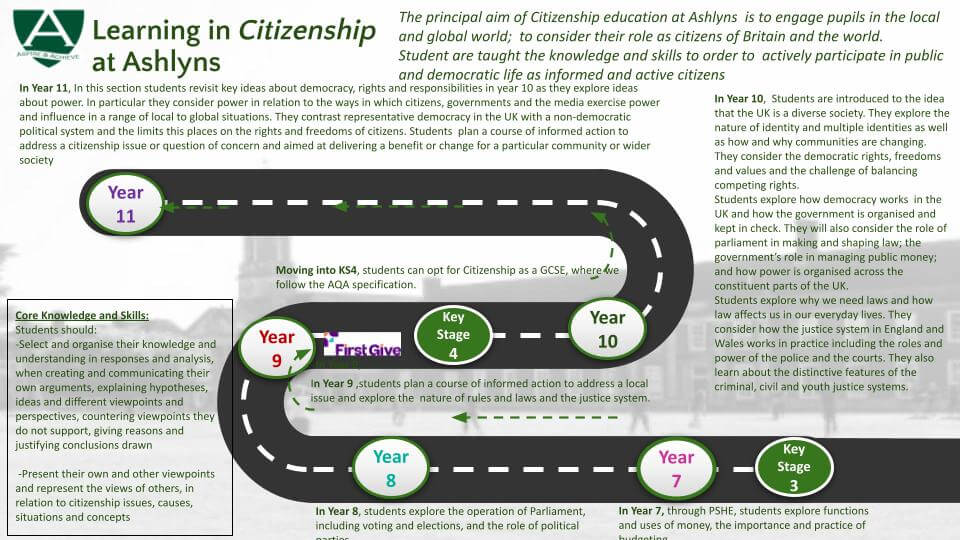Citizenship
Citizenship education is taught within PSHE lessons and develops knowledge, skills and understanding that students need to play a full part in society as active and responsible citizens. Pupils learn about politics, parliament and voting, as well as human rights, justice, the law and the economy. They also learn the skills of active citizenship. Teaching is brought to life using real issues and events in local to global contexts.

Key Stage 4
Citizenship GCSE is delivered via the Edexcel specification. In Year 10 students explore three themes of the examination: Living Together in the UK, Democracy at Work in the UK, and Law and Justice, asking questions such as: how have communities developed within the UK? What are democratic values and where do they come from? How does parliament work? How is power shared between Westminster and the devolved administrations? How does the justice system work?
In Year 11, students continue their study of the justice system and of crime. They follow this with a study of Power and Influence, looking particularly at the power and influence citizens can have within society, and the role and influence of the media. They finish with a study of citizenship in action, where students carry out an in depth, critical investigation leading to citizenship action. Students really enjoy this section of the course, which is a practical investigation and allows them to have a concrete impact on an issue of their choice.
Learning beyond the classroom
Eco council
A group of KS3 and Sixth Form students meet fortnightly to discuss environmental and sustainability issues, and work on ways in which education surrounding sustainability can be delivered across the school. The Eco Council was a key part of the school’s first Sustainability Week in 2020, helping to publicise core sustainability issues, delivering assemblies, constructing form time activities and driving a competition to make eco-bricks.

